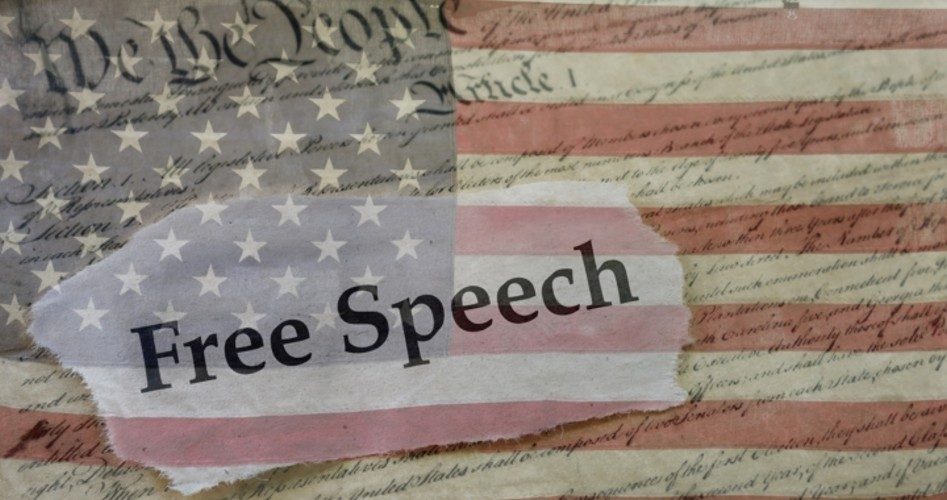
A survey of college students is confirming what our own eyes already show us: Support for the First Amendment is eroding among college students. Over 40 percent of those students surveyed believe that “hate speech” should not be protected under the First Amendment.
The study’s authors define hate speech as: “attacks [on] people based on their race, religion, gender identity or sexual orientation.” Not surprisingly, political ideology was not considered.
While it’s good news that a majority of students support free speech, that support becomes less certain when students are asked about “hate speech” and about whether constitutional free-speech rights are more important than developing an atmosphere of “inclusion” on campuses.
The study, done by College Pulse and commissioned by the Knight Foundation, found that 41 percent of students surveyed believed that “hate speech” should not be protected under the First Amendment, while 58 percent thought such speech should be protected.
There are some gender- and race-based anomalies in the survey. For instance, 71 percent of males believe that protecting free speech is more important than fostering an inclusive society, where 58 percent of females believe that inclusivity is more important than protecting First Amendment rights.
Also, heterosexual students are far more likely to believe that “hate speech” should be protected (64 percent) than gay and lesbian students (35 percent) are.
In fact, as you go up the intersectional ladder, the support for free speech goes down. When asked if “hate speech” should be protected, 74 percent of men believed that it should. In contrast, only 48 percent of black students, 46 percent of female students, 35 percent of gay and lesbian students, and 29 percent of gender non-binary students believed that “hate speech” should be protected.
So those so-called marginalized groups are less concerned about free speech than they are fearful of “hate speech.” Does this mean that those groups will be allowed to define exactly what “hate speech” is?
A student’s faith also yields many differences on whether the First Amendment should be protected or not. In general, Christians are more likely to support First Amendment rights than non-Christians. Of those who professed a faith, 81 percent of Mormons, 76 percent of Evangelical Christians, 68 percent of mainline Protestants, and 61 percent of Catholics supported protecting “hate speech.” Of non-Christian religions, 45 percent of Jews and 46 percent of students from eastern religions support the protection of hate speech under the First Amendment. Islam was not, specifically at least, represented.
Over the past few years, there have been dozens of examples of students and faculty on various campuses protesting conservatives who are scheduled to speak. While a vast majority of students believe that this is either always (32 percent) or sometimes (60 percent) acceptable, there’s also a vast majority (83 percent) who believe that it is never acceptable to use violence to keep speakers from speaking.
One thing that most students agree on is that the current culture on campuses is intimidating, and that the majority of students do not feel safe expressing political opinions on campus. When asked whether the political and social climate on campus hinders them from expressing their opinions openly, there’s agreement. Overall, 68 percent of students agree that the climate on campus keeps them from openly expressing their opinions. Broken down politically, 62 percent of Democrats, 70 percent of Independents and 83 percent of Republicans do not feel comfortable expressing their opinions openly on campus.
Fifty percent of students polled had little faith in the news media to report current events accurately. Only 40 percent had some trust in the media, and only six percent had a great deal of trust in the media. So, at least the students seem to understand that today’s mainstream media does not report things accurately.
One last result is especially telling: Sixty percent of students believe that people get far too offended over the language that others use.
And that’s the crux of things. At least six in ten of the students surveyed believe that people are too easily offended by the things they hear. With the exception of incitements to violence and yelling “fire” in a crowded theater, free speech should be sacrosanct. The purveyors of political correctness and other cry babies need to learn that they aren’t the arbiters of what can be considered “hate.” And, frankly, even if it is “hateful,” that speech is still allowed under our Constitution. Still, those PC police are free to think and say what they want. This is America, after all.
Image: zimmytws via iStock / Getty Images Plus



